Post-Conference Workshops

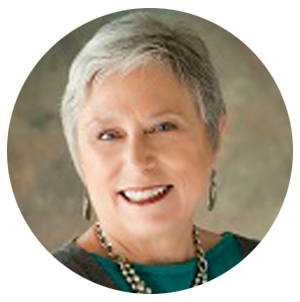
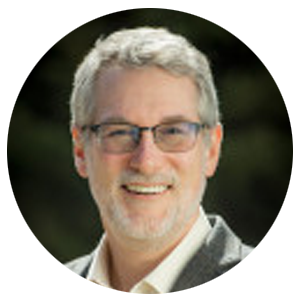
Professor Terry Myers Zawacki, Professor Martha Townsend and Professor Mike Palmquist
Title: Advice and Strategies for Using Writing to Learn to Write and Think in the Disciplines
Blurb: In this three-part synchronous workshop, participants will first be introduced to theory and pedagogy for using writing assignments and activities to help students learn disciplinary content and processes, think critically in a discipline, practice discourse conventions, and, for English L2 students, learn the language. Then participants will share course and disciplinary learning goals and outcomes for student writers and develop strategies for using low- and high-stakes writing tasks to help students achieve these outcomes. The workshop will conclude with discussions of strategies for responding effectively and efficiently to both informal and formal student writing.
Bio: Emerita professor Terry Myers Zawacki directed the Writing Across the Curriculum (WAC) program and the University Writing Center at George Mason University where she also co-led the university writing assessment efforts. While now retired, she continues to give workshops, presentations, and conference plenary talks at universities in the U.S. and around the world. She co-edits the International Exchanges on the Study of Writing book series and sits on the WAC Clearinghouse editorial board along with the boards of a number of WAC-related journals. Her publications include Engaged Writers and Dynamic Disciplines: Research on the Academic Writing Life and the co-edited collections WAC and Second Language Writers: Research towards Linguistically and Culturally Inclusive Programs and Practices; Writing Across the Curriculum: A Critical Sourcebook; and Re/Writing the Center: Approaches to Supporting Graduate Students in the Writing Center. She has also published chapters and articles on a range of teaching-with-writing topics, including research on second-language writing/writers; challenges faced by dissertation writers and advisers; implications of internationalization for the writing classroom; and writing assessment in disciplines. Prof. Zawacki was the recipient of a university award given annually to a faculty member who has made significant, long-term contributions to the overall educational excellence of the university and an Excellence in Teaching award.
Martha (Marty) Townsend is Professor Emerita of English at the University of Missouri, where she directed the internationally renowned Campus Writing Program. Townsend's scholarship has played a central role in the conceptualization and development of writing-across-the-curriculum (WAC) programs in the United States and abroad. She is a former literacy consultant to The Ford Foundation and consults widely on WAC program implementation, development, and assessment.
Mike Palmquist is Professor of English and University Distinguished Teaching Scholar at Colorado State University. His scholarly interests include writing across the curriculum, the effects of computer and network technologies on writing instruction, and new approaches to scholarly publishing. He is the founding editor and publisher of the WAC Clearinghouse, a publishing collaborative that focuses on writing and communication across the curriculum (https://wac.colostate.edu).
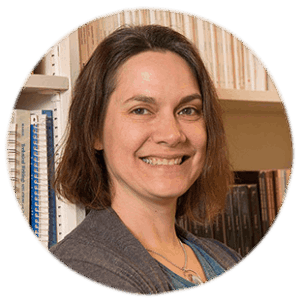
Unfortunately, this workshop was cancelled due to illness.
Dr. Michelle Cox
Title: A Framework for Teaching Academic Writing | English to Students across the Curriculum
Blurb: Academic writing is complex, requiring students to understand the processes, genres, rhetorical approaches, information literacy skills, disciplinary discourse, and subject matter of a field (MacDonald, 1994). Writing | English instructors often work with other peoples' students–students outside of their own field. How might these instructors assist these students in their journeys to become more effective with discipline-specific writing | English? In response to this challenge, The English Language Support Office (ELSO) at Cornell University, U.S., which provides support to international graduate and professional students across the university has developed the co-inquiry approach to pedagogy (Cox, Lindberg, & Myers, 2021 forthcoming). In this workshop, Dr. Michelle Cox will introduce this approach and explore, with participants, ways in which it may be adapted for their contexts.
Bio: Michelle Cox, Ph.D., directs the English Language Support Office, a writing and speaking support program for multilingual and international graduate and professional students at Cornell University, in Ithaca, New York. She was formerly faculty at Bridgewater State University, where she launched and directed a Writing Across the Curriculum program, and Dartmouth College, where she initiated graduate writing support. Her scholarship focuses on Writing Across the Curriculum (WAC), multilingual writing, and graduate communication support.
Her publications include four co-edited collections--Second Language Writing in the Composition Classroom: A Critical Sourcebook (2006), Reinventing Identities in Second Language Writing (2010), WAC and Second Language Writing: Research toward Linguistically and Culturally Inclusive Programs and Practices (2014), and Supporting Graduate Writers: Research, Curriculum, and Programs (2016)--and a co-authored monograph--Sustainable WAC: A Whole Systems Approaching to Developing WAC Programs (2018). Her publications also include nineteen book chapters and nine journal articles, with her work appearing in Across the Disciplines, Composition Studies, and the English Journal.
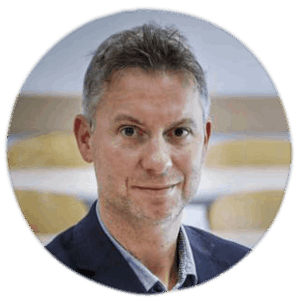
Professor Oliver Meyer
Title: Re-thinking course design for deeper learning in tertiary education
Blurb: In this workshop I would like to illustrate how the concept of deeper learning has affected our understanding of the role of literacies in language education and how our revised understanding is shaping not only the design of individual seminars but the way we conceptualize pre-service teacher education.
Bio: Dr. Oliver Meyer is professor for English-Didactics at the Johannes Gutenberg-University/Mainz. He is also a qualified teacher of Geography and EFL with several years of CLIL-teaching experience.
From 2008 – 2013, he worked as a pre- and in-service teacher trainer at the Catholic University of Eichstaett. As a CLIL-expert, he was co-responsible for the in-service training of the 150+ middle school teachers involved in a CLIL pilot program in Bavaria.
His Ph.d dissertation is on instructed strategy use and its effect on oral language performance in young CLIL language learners. He is especially interested in developing and disseminating cutting-edge, evidence-based teaching strategies.
Oliver Meyer has authored several CLIL and ESL textbooks and is currently working on a conceptual framework for the next generation of digital textbooks (Learnscaping: Beyond the digital textbook).
He is a member of the CLIL Cascade Network and has been invited to teach CLIL courses in many European countries. In 2010 he co-organized the international CLIL 2010 Conference (CLIL 2010: In Pursuit of Excellence) in Eichstaett/Germany. In 2010, he was awarded first prize at a prestigious competition for innovation in teacher training (Pädagogik Innovativ 2010).
He is currently coordinating "CLIL 2.0: Literacies through Content and Language Integrated Learning: effective learning across subjects and languages", a project (2012-2015) for the European Centre for Modern Languages (ECML). The Graz Group is made up of experts such as Christiane Dalton-Puffer, Do Coyle, Christiane Dalton-Puffer, Ana Halbach, Irina Hawker, Ana Llinares, Roy Lyster, David Lasagabaster, Gerrit-Ian Koopman, Yolanda Ruis-Zarobe, Kevin Schuck, Teresa Ting, Teresa Ting, Johannes Vollmer & Rachel Whittaker.
Prof. Meyer is a reviewer for journals such as Applied Linguistics, The Language Learning Journal and Sage Open. Selected Plenaries in 2014: Think CLIL 2014 (Venice); CLIL CORE (P. d. Mallorca); CLIL (Hongkong)
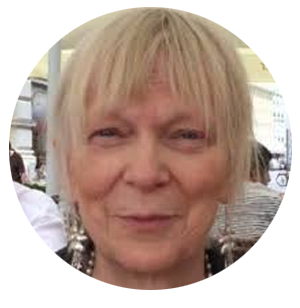
Professor Do Coyle
Title: Teachers as Designers of Learning: Fundamentals of task design and sequencing
Blurb: In this workshop I will give concrete examples of why the principle of teachers as designers of learning is fundamental to pluriliteracies approaches. Exploration of how task design in terms of content and type is connected to sequencing learning is critical for deeper learning.
Bio: Do is an international expert in the field of CLIL (Content and Language Integrated Learning) after having spent her career both as a languages teacher (French, Russian and English) in a wide range of schools in the UK and France, and as an academic, working and researching ways of improving learner experiences in classrooms where other languages are used as the medium of learning. As an early pioneer of the CLIL movement in Europe, working with bilingual teachers, she developed the CLIL 4Cs Framework and the Language Triptych which has now been adopted and adapted globally for guiding and planning pedagogic approaches for bilingual learning and CLIL classrooms. Do has gained worldwide acclaim through her drive to enable teachers and their learners to have confidence in developing conditions for deeper learning and especially in ensuring that learning is spatially designed, cognitively challenging – built on linguistic progression – and is interculturally connected. At the University of Aberdeen (2008-2017), where she held a 6th Century Chair in Learning Innovation and was Dean of the School of Education and Music (2012-2016), her work as a founder member of the Graz Group involved a transnational research team, funded by the ECML. The Graz Group is currently developing a PluriLiteracies approach to Teaching for Deeper Learning (PTDL) and is constantly exploring ways of achieving sustainable deeper learning across languages and contexts.
Throughout her career, Do has also focused on 'shared learning' and technology-enabled spaces which enable all learners to connect with other learning sites – from the very local to the very global. She was co-lead for the Visual Learning Lab (University of Nottingham) and led a team building the technology-enabled professional learning (TePL) network in Aberdeen. She has a keen interest in developing spatial awareness in pre-service teachers and the need to evidence how space ( inside, outside and across physical boundaries) impacts on learner attainment, achievement and sense of self-worth. Her current post at the University of Edinburgh (2017-) as Professor in Languages Education and Classroom Pedagogies returns to focus on educational linguistics, language education and technology-enabled shared learning – where her heart lies. Working in a collaborative team across all Scottish universities, which successfully developed the National Framework for Languages (ITE), Do's work focuses on developing Language Education in MHSES and pedagogic approaches to support bilingual education in different forms whilst promoting pluriliteracies skills for all learners. She also aspires to develop the network and a distinctive research profile for the Shared Learning Spaces Lab to encourage more teachers to rethink 'space' for shared learning and its impact on their learners. She is currently Director of the Language Education Research Hub at Moray House.
A simple tenet drives her work: educators, practitioners and learners are experts – they are the researchers who need to 'own' their practices, be digitally connected and collaboratively build shared learning spaces (SLS) for optimum conditions for deep learning. Above all, she believes that language is our greatest learning (and teaching!) tool.
She became a Chevalier dans l'Ordre des Palmes Académiques (1998) awarded by the French Government for services to education promoting European Teacher Education and holds a Lord Dearing Award for Excellence in Teaching in Higher Education(2002).